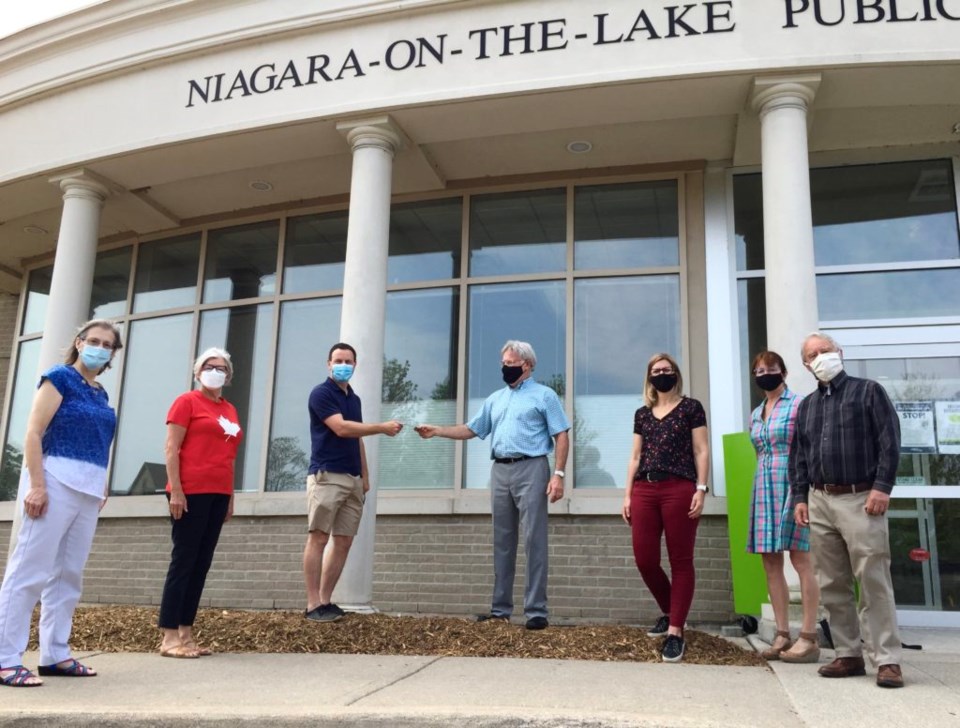
It was almost 10 years ago, but the memory of the visit remains clear.
I remember sitting at a table with Peter, whose daughter had passed away hours earlier in Jamaica, the day before her 21st birthday. He had missed her call when she tried to phone him earlier that day to say goodbye, knowing she only had a few hours to live.
Paying for her medication and hospital treatment had required incredible sacrifice, and even going without meals. Having access to an internet-based messaging app such as WhatsApp could have allowed him the opportunity to see her face and hear her voice one last time.
There are about 2,000 Caribbean and Mexican farm workers in Niagara-on-the-Lake over the course of a season. These are not just statistics, but real lives that have been severely impacted due to lack of communication with loved ones, especially during times of crisis. Although more employers are recognizing the necessity of internet access, there are still many local farms where employees have no alternative but to pay for expensive data plans to connect with family. Basic plans, starting at $50 per month, allow them to have limited calls with their families back home via WhatsApp, but they cannot watch videos of important events, such as their child’s first steps, or a family member’s funeral.
The necessity of communicating with loved ones during the four months of hurricane season, or more recently the volcanic eruption on St. Vincent, creates unimaginable anxiety. To not know if your children are safe, or if your home has survived while you work long hours in the field, is unbearable. Especially during the pandemic, children need to be able to talk with their parents at night. We all deserve to be connected with our loved ones.
Dr. Janet McLaughlin is an associate professor of health studies and a research associate with the International Migration Research Centre at Wilfrid Laurier University. She has been conducting research with migrant agricultural workers in Ontario, including Niagara, for the past 15 years.
“Throughout this time, I have learned about how socially isolated workers are, and how desperately they miss their families. Family separation also has major detrimental impacts on migrant workers’ children and spouses at home in countries like Mexico and Jamaica,” she says.
McLaughlin affirms that access to internet, enabling regular family contact, has great potential to help ease some of the loneliness and family strain migrant workers experience.
Pre-flight COVID forms, travel documents that need to be submitted in order to board the flight home, and important vaccination or health information can only be found online. There are many systemic barriers preventing farm workers from accessing this necessary form of communication.
In recent years, public libraries in some rural areas have been responding to this urgent need by loaning mobile WiFi hotspots out for as long as six months, depending on the services required. Kitchener, Guelph, Meaford and Bradford loan out as many as 82 WiFi hotspots per library, which are often funded by the local Rotary or the Ontario Libraries Capacity Fund.
For the past three years, there have only been two hotspots available to loan to bunk house locations. It has been difficult to have to keep turning down requests, especially during the COVID crisis.
In addition, there are a few blackout pockets in NOTL where farm workers cannot make a phone call, even with a Canadian number. The WiFi hotspot has helped ensure a reliable connection with their families.
On Tuesday the NOTL Rotary Club presented a cheque for $4,275 to cover the costs of the hardware for three new WiFi hotspots, and the two-year contract for each. There is presently a waiting list for bunkhouse locations where there is no WiFi available, and cell phone connections are an ongoing problem.
It costs the NOTL Library about $100 to purchase the WiFi hotspot hardware, and $1,200 for a two-year contract. That works out to about $50 per month, serving up to 15 devices at a time, a substantial saving over an individual contract for the same amount.
On one of our trips to Jamaica, my friend Jodie Godwin, her daughter Leah, and I visited Peter and his wife. We walked together down the path behind their rural home to their daughter’s gravesite overlooking the valley, the air sweet with the scent of the soft needled pines in the surrounding forest.
We reminisced about the painful circumstances under which we met, yet grateful for the treasured friendship which grew out of that initial visit. The conversations we shared also planted seeds of new ideas. Providing reliable internet service is one example of how we can support each other in new and positive ways as a community.
Thanks to the NOTL Rotary and the NOTL Public Library, internet communication that helps to strengthen family ties will now be possible for some of our essential neighbours on the farms.